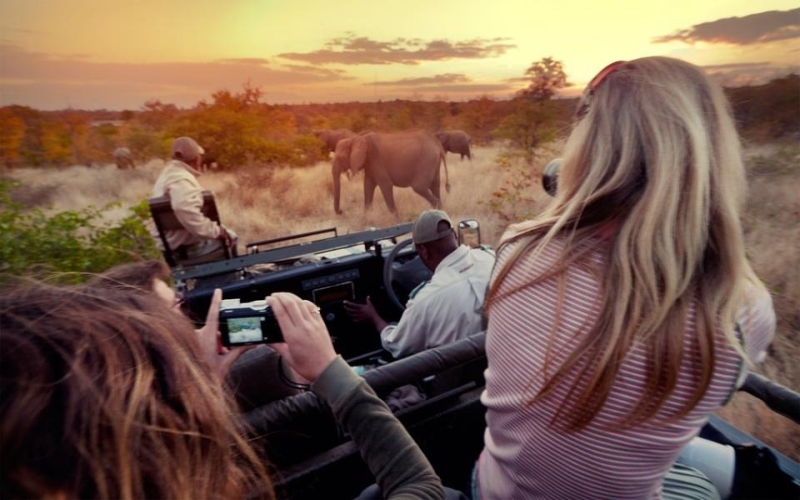Introduction
Embarking on an African safari is a dream come true for many travelers. The allure of witnessing majestic animals in their natural habitat, experiencing stunning landscapes, and immersing oneself in the rich cultures of Africa makes safaris one of the most sought-after travel experiences. However, ensuring a safe and memorable journey requires careful planning and preparation. This article provides essential tips to help you make the most of your African safari adventure.
Choosing Your Safari Destination
One of the first steps in planning a safari is selecting the right destination. Africa has numerous game reserves and national parks, each offering unique attractions. For instance, a Kenya safari is renowned for its breathtaking wildlife, including the Big Five and the annual Great Migration in the Maasai Mara. Consider what you want to experience, whether tracking gorillas in Uganda, exploring the vast savannahs of Tanzania, or witnessing the scenic beauty of South Africa’s Kruger National Park.
When choosing your destination, research the best time to visit, the types of wildlife you will encounter, and the accommodation options available. Tailor your choice to your interests and budget to ensure a fulfilling experience. Check your selected destination’s travel advisories and health requirements, such as vaccinations.
Planning Your Trip
Proper planning is critical to a successful safari. Start by determining the duration of your trip and the activities you wish to partake in. Depending on your preferences, Safaris can range from a few days to several weeks. It’s advisable to book your safari through a reputable tour operator who can provide expert guides and arrange logistics such as transportation and accommodations.
Pay attention to the itinerary. A well-structured itinerary will maximize your chances of spotting wildlife and allow for immersive experiences. Include a mix of game drives, walking safaris, and cultural visits to local communities. Also, consider incorporating some downtime to relax and soak in the serene landscape.
What to Pack
Packing the right essentials will significantly enhance your comfort during the safari. Here are some must-have items:
- Clothing:Opt for lightweight, breathable clothing in neutral colors to blend in with the environment. Long-sleeved shirts and pants protect against sun and insect bites. Remember a wide-brimmed hat, sunglasses, and a warm jacket for chilly mornings and evenings.
- Footwear:Sturdy, comfortable shoes are essential for game walks and exploration of rough terrain. Pack sandals or flip-flops to relax at the lodge.
- Gear:A good-quality camera with extra batteries and memory cards is essential. Binoculars enhance your ability to spot distant wildlife. Carry a daypack to store water, snacks, and personal items during excursions.
- Health and Safety:Sunscreen, insect repellent, a basic first-aid kit, and any necessary prescription medications are essential. It’s also wise to have a copy of important documents such as your passport, travel insurance, and emergency contacts.
Respecting Wildlife and Nature
An African safari offers the rare privilege of observing wildlife in its natural habitat. To ensure your safety and the well-being of the animals, it’s important to follow guidelines and exercise caution. Always maintain a safe distance from wildlife and never attempt to feed or touch them. Pay attention to your guide’s instructions during game drives and walks.
Respect the environment by minimizing your ecological footprint. Stay on designated paths, avoid littering, and support conservation efforts by choosing eco-friendly accommodations. Remember, the goal of a safari is to observe and appreciate wildlife without disturbing their natural behaviors or habitats.
Engaging with Local Cultures
An African safari is not just about wildlife; it’s also an opportunity to engage with the continent’s rich cultures. Take time to visit local villages and interact with the communities. Learning about their traditions, customs, and way of life provides a deeper understanding of the region and enhances your travel experience.
Support local artisans by purchasing handmade crafts and souvenirs. Participating in cultural tours and activities, such as traditional dance performances or cooking classes, fosters mutual respect and appreciation. Ensure that your interactions are respectful and that your contributions benefit the local economy.
Conclusion
Africa’s diverse landscapes and incredible wildlife make it a top destination for safari enthusiasts. You can ensure a safe and memorable African safari by choosing the right destination, planning your trip meticulously, packing wisely, respecting wildlife, and engaging with local cultures. This journey will offer breathtaking experiences and foster a deeper connection with nature and the people who call Africa home.

